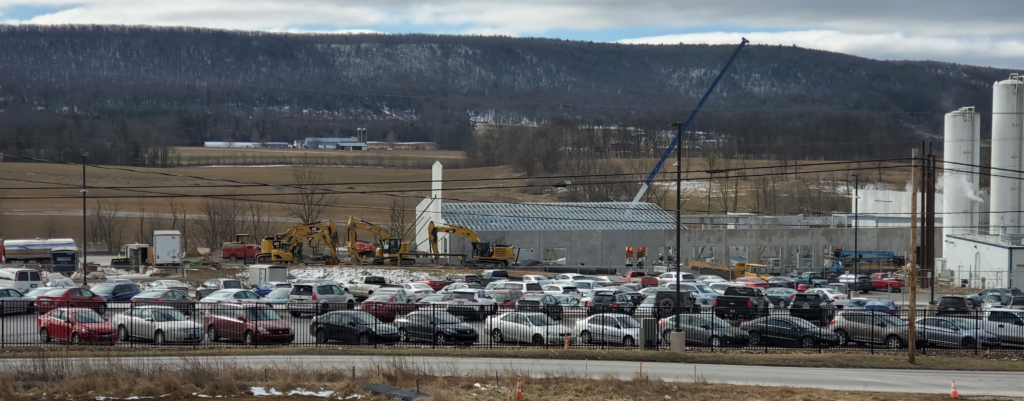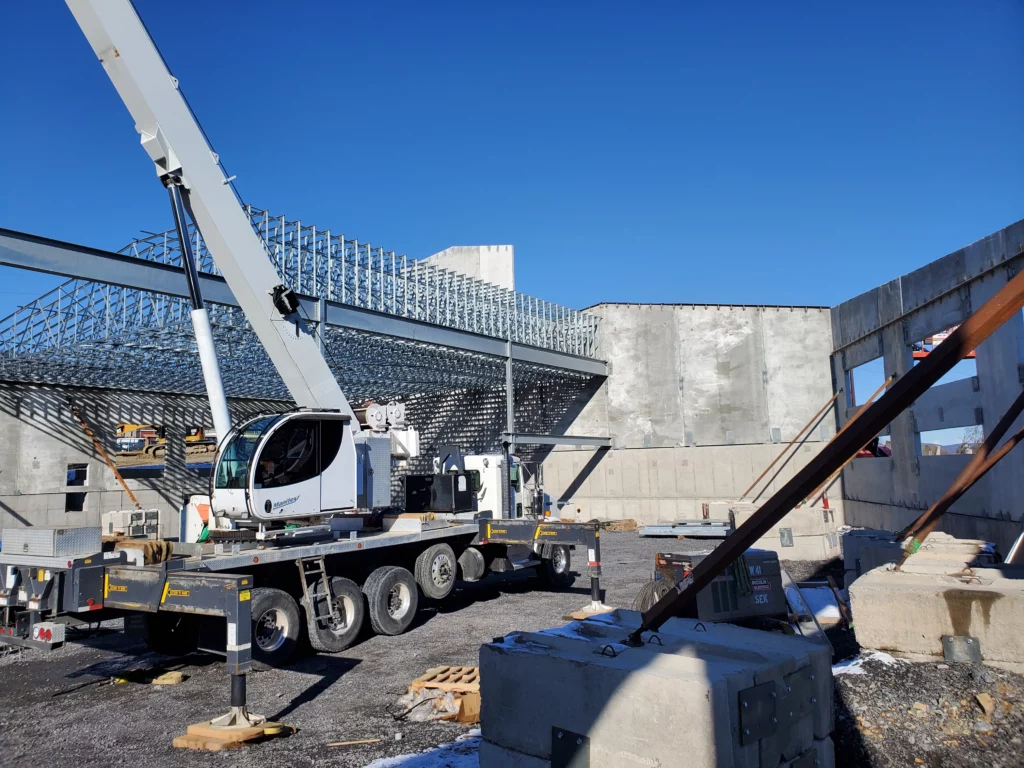Nicholas Meat Adds Barn, Increases Sustainability
March 20, 2023
March 20, 2023
Progress is evident on the new cattle barn at Nicholas Meat as walls, roof trusses, and metal roofing may now be seen from Hwy. 880. With continuous improvement as a goal, Nicholas Meat is building the new barn to focus on animal husbandry, food safety, sustainability and improve efficiencies.

“Development of this new barn will streamline the receipt of cattle at Nicholas Meat,” explained Doug Nicholas, VP & COO of Nicholas Meat. “Unloading time will decrease, minimizing the time cattle spend on a trailer. This will be a win for everyone as farmers can deliver their cattle more quickly and efficiently than before. And, our increased holding capacity and improved barn design allow animals to better acclimate to their surroundings, thereby reducing animal stress.”
Animal Care Takes Center Stage
According to Penn State Extension, when an animal becomes stressed, it depletes muscle glycogen, leaving the meat a dark red color rather than the normal bright red. It can also cause the meat to be dry. Thus, it was important for Nicholas Meat to design a system that is as low-stress as possible for cattle. The system is based on the work of Temple Grandin, PhD, a designer of livestock and handling facilities and a professor of animal science at Colorado State University.
“We’ve designed a barn without hard corners to help reduce potential injury to cattle,” Nicholas continued. “Besides the soft-corner design, we’ve incorporated rubber floor mats to cushion the animals’ hooves.

“The barn will have an advanced climate control system that utilizes waste heat from our refrigeration system to heat the barn during the winter. This helps keep the cattle less stressed while allowing us to be more sustainable.”
Slatted Floors Equal Food Safety, Sustainability & Efficiency
Not only will the rubber-matted floors cushion the animals’ hooves before harvest, but the slats in the floor will allow for an internal flush system to be incorporated. The system will use reclaimed water to help reduce labor and improve sustainability.
“Through technology and conservation, Nicholas Meat already uses 50 percent less water on a gallons-per-head basis than industry standards and we envision recovering and reusing up to 90 percent of our water in the future,” explained Brian Miller, Nicholas Meat Director of Sustainability.
Recycled water will be used to periodically flush manure from the slatted floors. This water and manure slurry will then flow through a mechanical separation system where the solids are retained as a nutrient-rich soil amenity for application to local farmland. Meanwhile, the remaining liquids will be treated for eventual reuse back into the barn flushing system.
“This flushing system helps prevent manure build-up and therefore keeps cattle cleaner, providing better pathogen control and reducing the risk of cross-contamination from one cow to another,” Miller added. “It eliminates manual labor to clean the floor and eliminates wood chips used for bedding material, thereby reducing our solid waste and land application.”
Nicholas Meat broke ground on the new barn in 2022 and expects to complete construction in 2023.